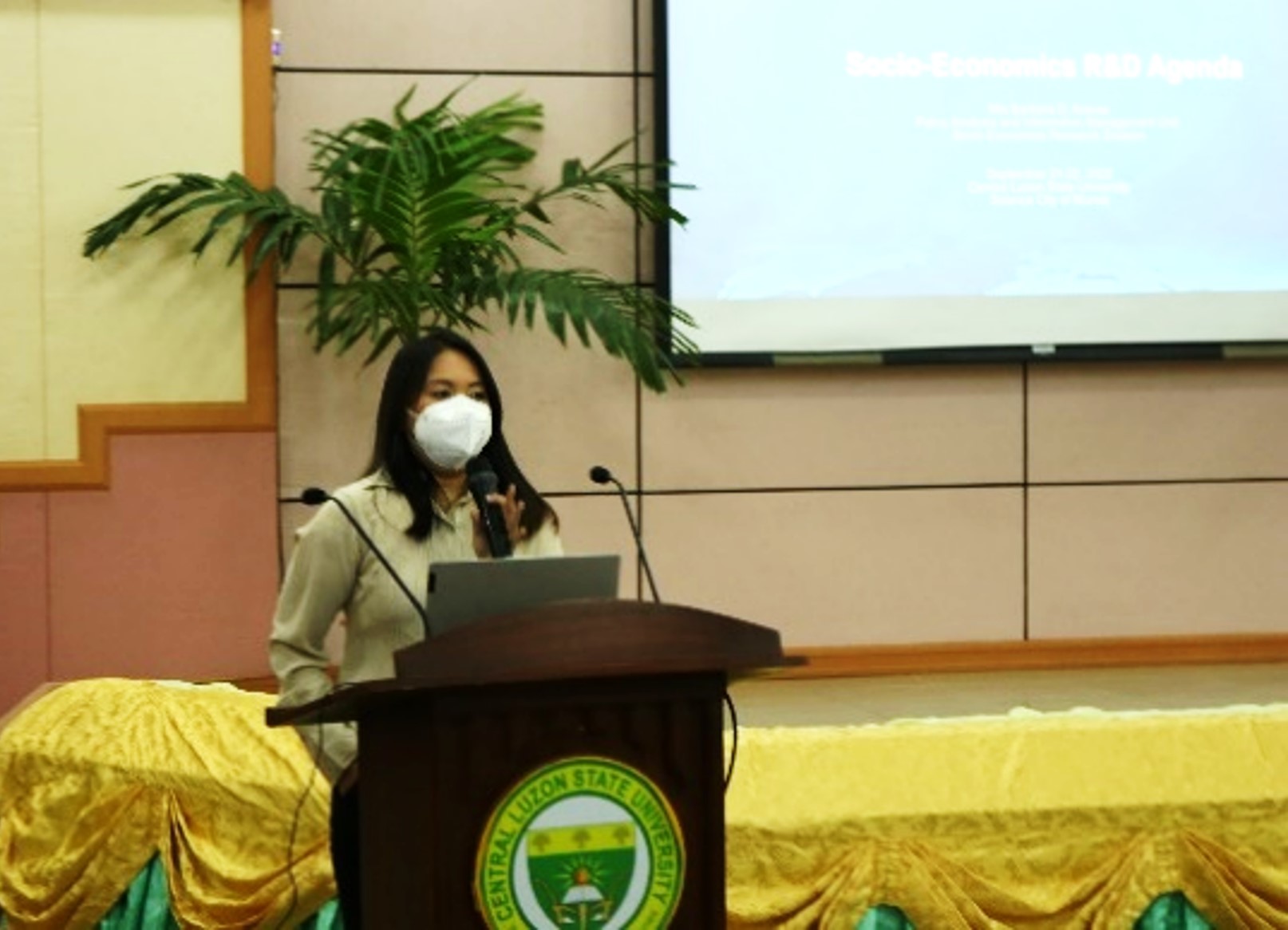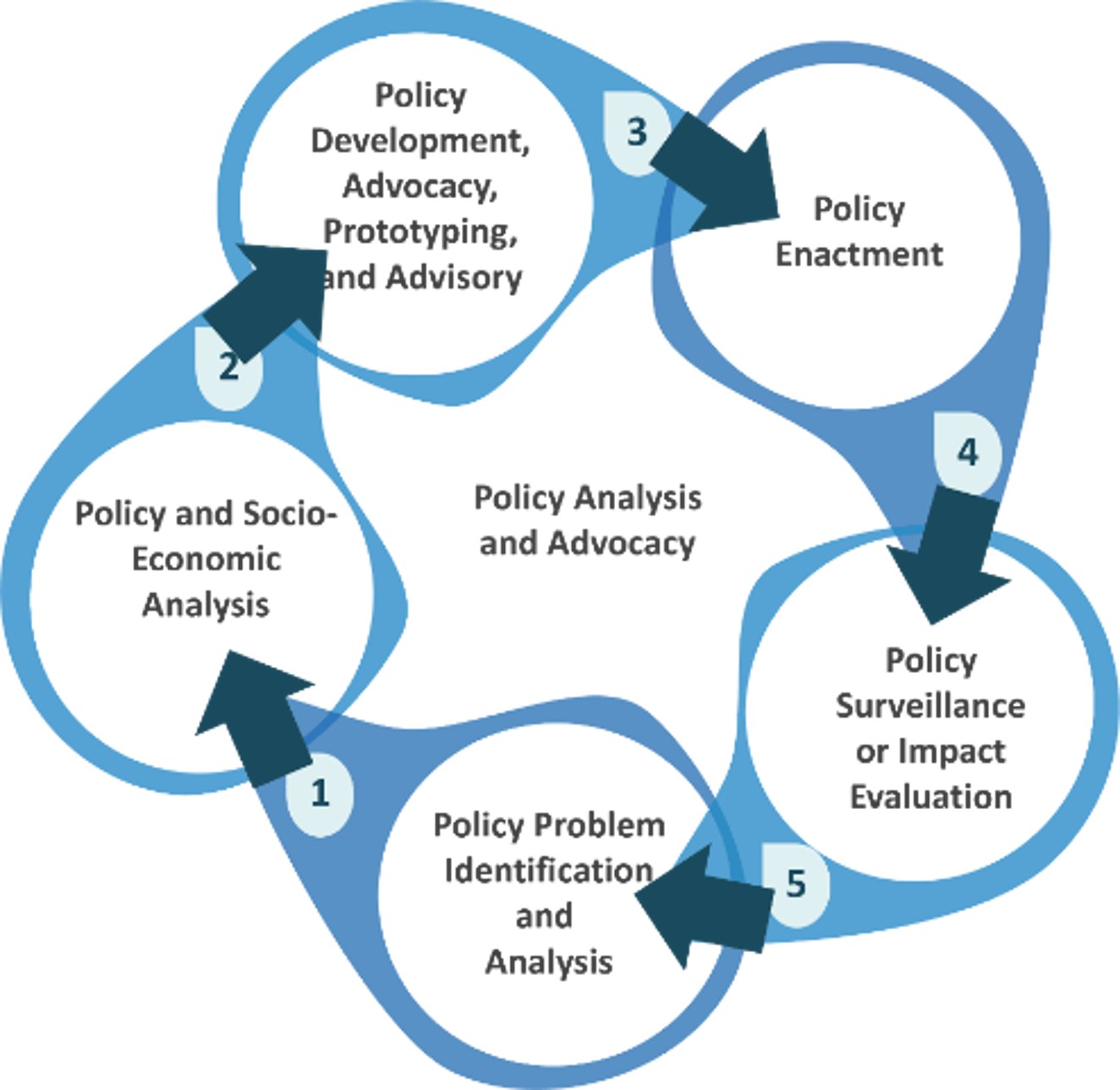
As part of the initiatives of the Philippine Council for Agriculture, Aquatic, and Natural Resources Research and Development of the Department of Science and Technology (DOST-PCAARRD) to enhance regional consortia functions on Policy Analysis and Advocacy (PAA), the Luzon Socio-economics Research and Data Analytics Center (SERDAC), in partnership with DOST-PCAARRD, organized a consultative meeting with experts under the Central Luzon Agriculture and Resources Research and Development Consortium (CLAARRDEC).
The meeting helped develop focal themes for CLAARDEC’s R&D agenda on socio-economics and policy. This will not only prevent the duplication of research efforts, but will also promote the complementation of research and development (R&D) and capacity building plans in the region.
Member agencies that participated in the event included the National Economic and Development Authority (NEDA), Philippine Rice Research Institute (PhilRice), Philippine Center for Postharvest Development and Mechanization (PhilMech), Department of Agriculture (DA), DA - Bureau of Agricultural Research (BAR), DA - Bureau of Fisheries and Aquatic Resources (BFAR), Tarlac Agricultural University (TAU), Bataan Peninsula State University (BPSU), Bulacan Agricultural State College (BASC), Pampanga State Agricultural University (PSAU), Aurora State College of Technology (ASCT), and CLSU.

Ms. Mia Barbara DV. Aranas, senior science research specialist from the Socio-Economics Research Division (SERD) of DOST-PCAARRD, served as the key resource person for the event. To ensure that participants are well-equipped with appropriate information and tools in creating themes for their R&D agenda, Ms. Aranas provided a lecture on DOST-PCAARRD’s Socio-economics Long-term S&T Programs.
The socio-economics long-term S&T program of the Council capitalizes on five major components: PAA, Agri-Aqua Business Development, Impact Assessment, Gender and Development, and Applied Rural Sociology. Although each component was generally explained, majority of the lecture focused on PAA.
Ms. Aranas shared the PAA framework which encapsulates critical strategies to promote the creation of more science-informed policy initiatives, from the identification of problems up to the evaluation of enacted policy solutions. Results of selected policy projects, funded and monitored by DOST-PCAARRD, were also discussed as examples for the participants to have additional context on the types of research areas they will be contributing to the meeting.

During the brainstorming session, participants were provided with guide questions to identify their preferred thematic areas (by industry or commodity, etc.). They were also instructed to establish targets for these themes, and to think of possible socio-economic R&D that CLAARRDEC can endorse and pursue to achieve these targets. Sample areas that the participants developed during the workshop are related to the following:
- Improvement in the level of rice mechanization in the region;
- Enhancement of onion productivity in Central Luzon;
- Dynamics of sargassum trade in Region 3 (i.e. value chain, industry analysis, etc.);
- Regulatory policies on livestock production and waste management;
- Reduction in post-harvest losses for perishable commodities; and
- Stabilization of sugar prices in the region
